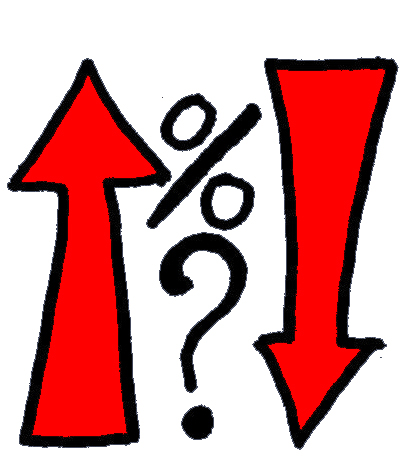Homeowners with tracker mortgages would have had a small smile on their face yesterday afternoon when the European Central Bank announced plans to cut its interest rate to a record low of 0.15%.
The sixth rate reduction in the last two-and-a-half years, it is expected that somewhere between 375,000 and 400,000 people will benefit through cheaper repayments each month.
While the savings only equate to around €6 each month for every €100,000 borrowed, they are still to be welcome and now mean that those on tracker mortgages are saving thousands of euro per year from what they were paying in the autumn of 2011.
If we look back as far as the boom then the savings are even greater with ECB rates having fallen from 4.5% to 0.15% since 2008.
Worryingly for other homeowners though, it appears that those on standard variable rates are set to pay for the savings of others yet again.
Reports this morning suggest that banks here will increase their variable rates in the coming weeks and months to compensate for the losses they are making on tracker mortgages.
This is plain wrong and will only widen the gap in an already two-tier system. The average mortgage holder is now paying around 4% per year more on a variable rate than they would be if they had a tracker.
Following yesterday’s decision of the ECB, it means that a borrower with a mortgage balance of €200,000 over 20 years on a tracker rate of ECB + 1% will now have a monthly repayment of €932. By contrast a variable rate customer who owes the same amount also over 20 years, and who is typically paying 4.5% interest, will still have a monthly repayment of €1,255. This is a staggering €323 a month more than the person with the tracker mortgage. If the difference was maintained over the remaining lifetime of the mortgage it would amount to a massive €77,492 in additional interest and that’s before any potential increase.
It is to be expected that variable rates will always be higher in the current environment but to continue to increase them when the cost to the bank of servicing them is falling is wrong.
Yes, banks have to balance their books but it is unfair to punish others for what is essentially their mistake in handing out so many trackers.
The whole idea of the ECB rate cut is to stimulate the economy and get people spending. A large portion of the population will only be crippled by bigger bills if this morning’s reports turn out to be fact.
Surely the time has arrived for the ECB, the Central Bank or, indeed, the government to step in to ensure this doesn’t happen.
The lack of competition in the market at present means that people are already bereft of options. The news on mortgage arrears was positive this week, with a slight fall of those in serious arrears. It’s still a major problem though and while it may be slowly improving, an increase in rates may only push more and more over the edge.
Enough is enough surely.





